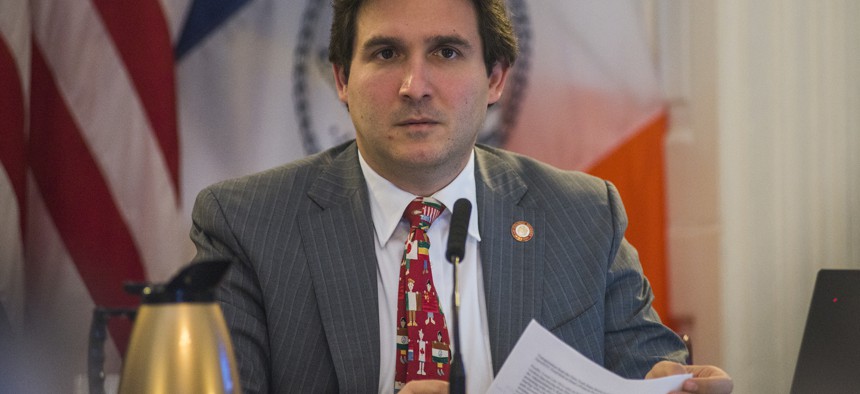City Councilman Kallos calls for nonprofit funding to be prioritized over for-profit business contracts

New York City Councilman Ben Kallos. Jeff Reed / New York City Council
Government contracts have been a vital source of funding for human services nonprofits in New York City – and a source of great frustration. Delayed contracts and underfunding have been common concerns nonprofits have brought to city government – concerns that have only become more acute during the COVID-19 pandemic. NYN Media spoke with City Councilman Ben Kallos, who chairs the Committee on Contracts, about the committee’s upcoming June 23rd hearing and how the city can improve funding for nonprofits. This interview has been edited for length and clarity.
A lot of nonprofits worry they won’t be made whole on discretionary funds after a certain date if they aren’t deemed essential. There have also been concerns about what the funding will look like in next year’s budget. What changes would you like to see for discretionary funding?
It’s kind of scary when I go to most nonprofits in the city and say, “What can I do for you”; they’re like, “Can you get me paid?” Not even “Can you get me more money,” but “can you get me paid?” … Any of your readers can email contracts@benkallos.com, like dozens of others have done, and we’ll work to get them paid, particularly during this time.
(Discretionary funding) has stayed the same, year in, year out. We’ve been talking to the Mayor’s Office of Contract Services about what it would take so that on July 1, agencies and nonprofits could get paid off discretionary contracts from the Council, which is tens of millions of dollars. One of the things we were thinking about is perhaps doing the first tranche of discretionary funds in January or even March or once the mayor puts out what the budget would be, we could do the first tranche of dedicated funding, knowing that there might be a swing one way or another but we could at least do a baseline.
There was this tension between the city’s commitment to honor contracts with nonprofits and the sudden cut for the Summer Youth Employment Program. What are you doing to ensure better communication in case there are cuts coming – or to prevent those cuts?
I think that the city should be cutting contracts with for-profit, Fortune 500 companies before we cut any contract with a nonprofit providing essential services in a community with needs. … With a $94 billion budget, I can think of several billion dollars in cuts we can make before we touch our nonprofits.
The City Council has pushed forward a proposal to make sure employers are offering hazard pay, but nonprofits have also been concerned that they’re not getting reimbursed for those costs. How can you ensure nonprofits pay hazard pay but get reimbursed for the costs?
I’m a co-sponsor of the legislation with Speaker Corey Johnson and Laurie Cumbo and, as far as I’m concerned, if we’re able to pass that legislation, the city should be paying its fair share for nonprofit providers as well as any contractors who are doing city work.
Another piece of contract-related news is about rollouts related to PASSPort. Are you monitoring what’s going on with the digital procurement system?
I would say, if not daily, every other day we are in contact with the Mayor’s Office of Contract Services monitoring PASSPort, making sure that rollout is moving forward. While it was initially supposed to happen during the pandemic, the Mayor’s Office of Contract Services rightly pivoted to focusing on acquiring personal protective equipment. Now that we are on the other side of the curve hopefully, the Mayor’s Office of Contract Services has gone back to trying to get PASSPort online. … I am very hopeful that once PASSPort is online, there will be a new level of accountability for nonprofits or anyone doing business with the city.